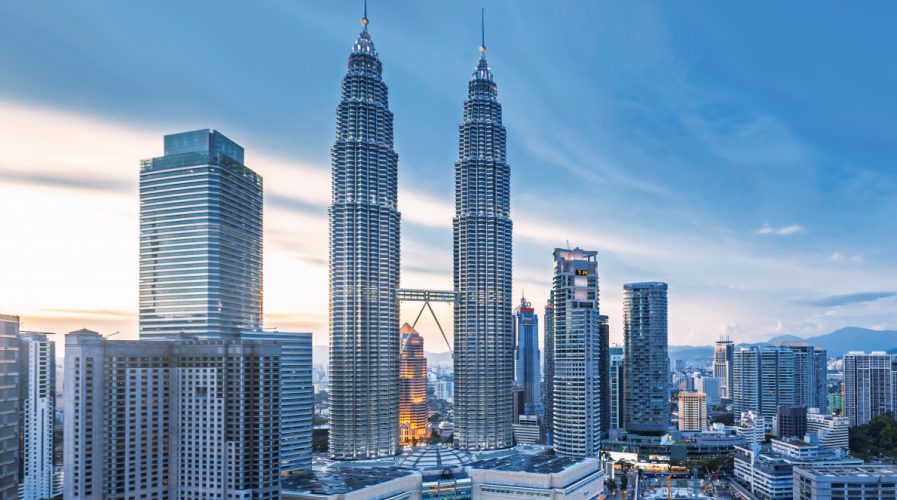
(File) Malaysia believes a blanket ban on digital currencies would curb innovation. Souce: Shutterstock
Malaysia to boost ‘Internet Economy’, national budget reveals
INDUSTRY experts are lauding Malaysia’s national budget for 2017, which they say demonstrate the country’s desire to push for a greater digital presence. The government announced that 2017 is set to be “the year of the Internet Economy” with the introduction of the world’s first digital free trade zone and digital hubs.
As Southeast Asia’s third-largest economy approaches its goal of reaching high-income developed nation status by 2020, Prime Minister Najib Razak’s government last week announced an allocated RM260.8 billion (US$62.5 billion) for next year’s budget – an increase of 3.4 percent from 2016.
Of that, RM1 billion (US$240 million) has been allocated to the Malaysian Communications and Multimedia Commission (MCMC) to increase broadband coverage and quality. RM100 million (US$23.89 million) will go towards initiatives already in place that aim to support SMEs and digital entrepreneurs.
SEE ALSO: Cybersecurity expert says Malaysian companies prone to hacking as cases pile up
President of Malaysian Digital Association (MDA), Serm Tek Choon, told Marketing Interactive: “Whether you are large corporations looking to start your e-commerce initiative, or an SME which is leveraging on digital, or even a consumer who wants to buy cheaper products online – you should benefit from the incentives including tax exemptions, especially if this digital free trade zone works similarly to other free trade zones in the real world.”
According to the the Malaysia Digital Economy Corporation (MDEC), which is spearheading the government’s digital efforts, it aims to have the first “physical and virtual zones with additional online and digital services to facilitate international eCommerce and invigorate Internet-based innovation”.
MDEC CEO Yasmin Mahood said: “Budget 2017 also offers the startup community the much-needed support of an ecosystem that suits the nature of their business. With the implementation of Malaysia Digital Hubs, they can now enjoy the full benefits of the MSC Bill of Guarantees, including tax incentives.
Budget 2017: Good news for broadband users, entrepreneurs, digital economy and more https://t.co/ENMmuCLlrK pic.twitter.com/QvJGCA1jz4
— FinTech Malaysia (@FinTechMY) October 21, 2016
“In tandem with growing the local startup community in Malaysia, efforts to attract Foreign Knowledge Tech Entrepreneurs to Malaysia will definitely catalyze the nation’s growth,” she added.
Although there are few details on exactly how Najib’s government plans to implement the “digital free trade zone”, industry experts are keen to see how things will play out.
Jagdev Singh, a tax leader at Pricewaterhouse Coopers in Malaysia told Marketing Interactive that the concept of such a zone is “exciting” and that it was about time that the country had another catalyst to drive its growth as a digital hub.
SEE ALSO: Malaysia attracts $21.4bn of investments in ’emerging technologies’
Microsoft Malaysia’s managing director K. Raman also applauded the initiative, telling MIS Asia that it will “set the country apart as a key differentiator amongst other competing nations”. He added that as 97 percent of Malaysian businesses are SMEs – and account for 57 percent of the nation’s total employment – budget allocations for their support is necessary and will “improve their competitiveness within the industry”.
READ MORE
- Strategies for Democratizing GenAI
- The criticality of endpoint management in cybersecurity and operations
- Ethical AI: The renewed importance of safeguarding data and customer privacy in Generative AI applications
- How Japan balances AI-driven opportunities with cybersecurity needs
- Deploying SASE: Benchmarking your approach
